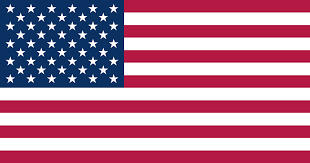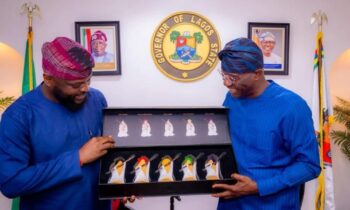
U.S Secretary of State Antony Blinken speaks with members of the civil society at the U.S. Embassy in Abuja
The United States has imposed entry restrictions on more Nigerians for undermining the democratic process during the African nation’s 2023 election cycle, U.S. Secretary of State Antony Blinken said on Monday.
“These individuals have been involved in intimidation of voters through threats and physical violence, the manipulation of vote results, and other activity that undermines Nigeria’s democratic process,” Blinken said in a statement.
Additional details were not provided.
The action is the latest in a series of visa restrictions imposed on Nigerian individuals in recent years.
Nigeria’s election tribunal this month was to begin hearing opposition petitions challenging president-elect Bola Tinubu’s victory in the disputed February presidential vote, court records showed.
Tinubu, from the ruling All Progressives Congress party, defeated his closest rivals Atiku Abubakar of the People’s Democratic Party and the Labour Party’s Peter Obi, who have alleged fraud and have launched a court challenge.
Atiku and Obi want the tribunal to invalidate Tinubu’s victory, arguing that the vote was fraught with irregularities, among other criticisms. Tinubu, who is set to be sworn in on May 29, says he won fairly and wants the petitions dismissed.
There have been numerous legal challenges to the outcome of previous Nigerian presidential elections but none has succeeded.
Meanwhile, the Chief Executive Officer of Connected Development (CODE), Hamzat Lawal, has asked the American government to name the subjects of the sanction.
US Secretary of State Antony Blinken in a tweet Monday announced the visa restrictions, noting that his country remained committed to supporting Nigerian aspirations to strengthen democracy and rule of law.
Responding in a live appearance on Channels Television’s Politics Today, Lawal advocated the naming and shaming of those refused entry into the North American nation.
According to him, exposing the identities of the subjects connotes a greater deal of transparency and sends a signal that actions have consequences.
“If they had named these names, then the Nigerian people can actually also know that even if our government and some institutions are not acting, the international community are watching and have acted, particularly the American government,” he said.
“I think it would have gone a long way. Yes, I can understand that the judicial process is ongoing and maybe they are not publishing these names so they don’t interfere with that process, but I think that they owe it to the Nigerian people who are their friends and partners.”
Lawal pointed out that there were expectations that the Nigerian police, as the apex law enforcement agency, would have prosecuted those who interfered in the electoral process or put them behind bars.
In the activist’s view, politicians should not be the only ones under visa restrictions.
“We saw private citizens, we saw former lawmakers, we saw, even, law enforcement agencies that are saddled with the responsibility to ensure peace and stability in the country who colluded with corrupt politicians and mischief-makers,” he said.
Describing the ban as “a right step that will lead to other steps by the American government,” the anti-corruption campaigner hopes that in due time, the US would publish the names.
“We should know, so that as civil society, what we’ll now do is inaugurate them in the hall of shame,” Lawal added.




